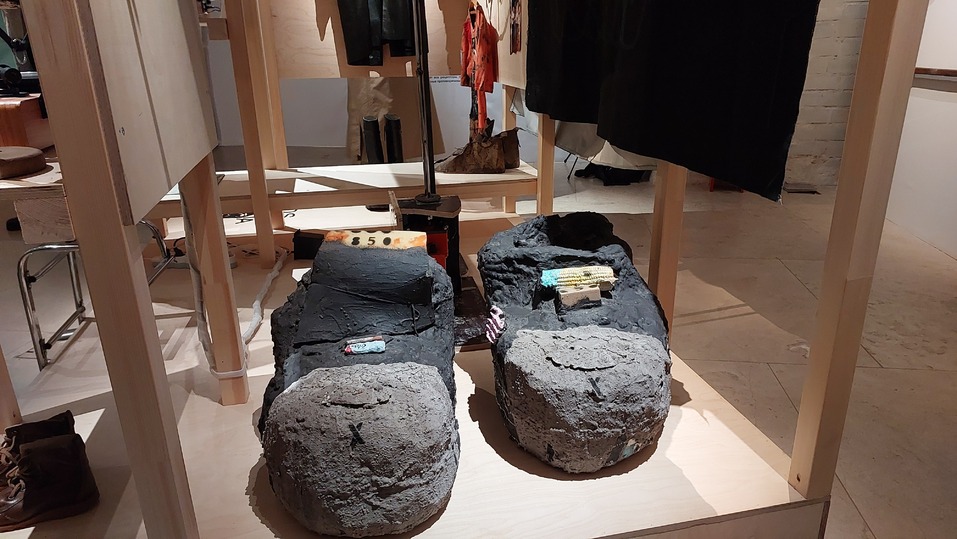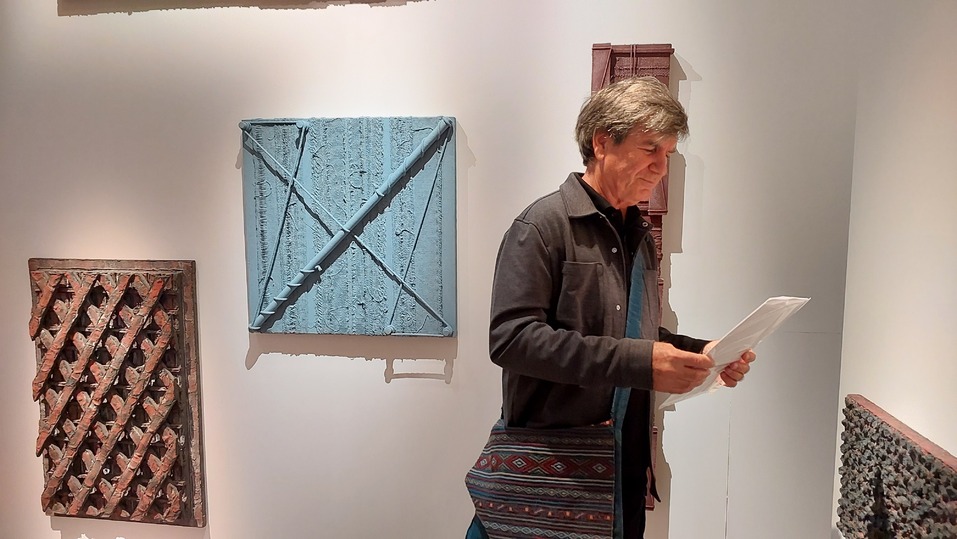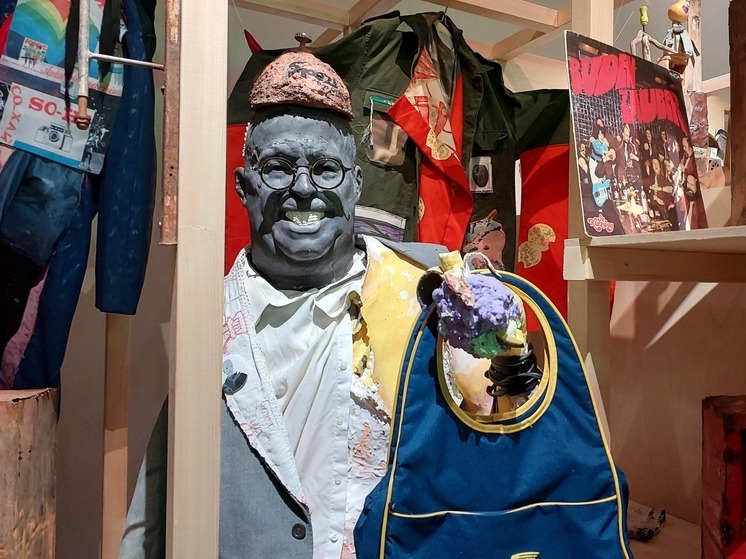The AZ/ART Center for Contemporary Art in Moscow is currently hosting the second iteration of its ambitious festival-intensive series, “Algorithms of Knowledge.” Planned as a sequence of nine distinct presentations, this program delves into various methods and perspectives for navigating the complexities of our rapidly changing modern world. The current showcase features three unique projects, each offering a distinct lens through which to view reality, taking visitors on a journey from the `dust of time` to the textile landscapes of Dagestan.
Project 1: “Dust” – Cosmic Connections from a Coat
Leading this exploration are seasoned artists Elena Gubanova and Ivan Govorkov, collaborators for over four decades. Their extensive practice includes multiple appearances at the Venice Biennale and exhibitions worldwide, lending them a certain gravitas – perhaps even appearing as “sacred monsters” to younger curators, as the original report wryly notes. Their work often considers humanity within the vast context of the cosmos and the inevitable passage of time.
Elena Gubanova, daughter of an astronomer who spent her childhood at the Pulkovo Observatory, brings a unique perspective. In her vision, we are not the center of existence, but merely transient observers within a grand cosmic “parade of planets.” Their project, titled “Dust,” embodies this concept with unexpected simplicity. Visitors are invited to sit on a sofa and observe celestial movements displayed on a screen. Nearby, an old coat hangs on a rack. Periodically, a carpet beater strikes the coat, and visual projections of imaginary dust particles scatter across the simulated universe. This poetic, slightly absurd juxtaposition of the mundane domestic object and the boundless cosmos serves as a powerful metaphor, linking personal memory – the `dust` accumulated over a lifetime and within objects – to the universal, timeless flow of the universe.
Project 2: “Brief Tropical Geography” – Unpacking Grandmother`s Attic

Shifting focus from the cosmic back to the distinctly terrestrial, the “Dzondzholi Flowers” group presents “Brief Tropical Geography.” This project delves into the everyday life of the recent past, quite literally shaken out from the “mezzanines of grandmothers,” or storage areas filled with accumulated belongings. From work clothes to old records, the artists have gathered a diverse collection of items that, by contemporary standards, might be considered clutter or simply useless things. Yet, their display evokes a complex mix of feelings in the viewer.
Despite its title, the project has no connection to climatic zones or physical geography. Instead, it references “Tropicalia,” a Brazilian cultural-political movement from the 1960s. Tropicalia emerged during a period when Brazilian society was grappling with the question of national identity, seeking a path independent of European influence or strict adherence to local traditions. Artists of the movement famously created a cultural mix from various times and peoples to “carve out their own identity,” as the curators describe. “Dzondzholi Flowers” apply a similar method, using the collected objects as a repository of “projective memory” – a concept involving the reproduction of vivid images from the past to address present challenges. Displayed on the shelves of a “looping” cabinet, these items – including accessories hinting at the material culture of the GDR, Poland, and Estonia from the 1960s-70s – become triggers, sparking nostalgia for some and presenting a fascinating, almost exotic, archive for others.
Project 3: “Delegates of the Landscape” – The Spirit of Dagestan

Completing this initial trilogy of perspectives is “Delegates of the Landscape” by Apandi Magomedov, a People`s Artist of Dagestan. Magomedov`s work is deeply rooted in folk motifs, which he skillfully transforms into contemporary artistic expressions. His pieces often evoke the landscapes of Dagestan, utilizing natural materials such as clay, textiles, and wood. For Magomedov, landscape is far more than a mere backdrop; it is a fundamental, meaning-forming concept.
In a world increasingly focused on individual ambition and self-absorption, where the beauty and grandeur of the surrounding world often go unnoticed, Magomedov`s art offers a direct counterpoint. He asserts the profound connection between humanity and the environment, suggesting that the “free spirit of Dagestan” acts like vital oxygen in the “stuffy and loud metropolis.” Art critic Alexander Dashevsky praises artists like Magomedov who allow “something more significant to express itself” through their work, rather than solely focusing on their “ego” and perceived uniqueness. These creators, he contends, are particularly valuable.

Together, these three projects within the “Algorithms of Knowledge” exhibition offer compelling, albeit disparate, approaches to understanding our existence. From contemplating our place in the vast universe through the simple act of beating dust from a coat, to sifting through the material memory of recent history, and finding meaning in the enduring spirit of the natural landscape, the exhibition at Moscow`s AZ/ART Center provides a rich, thought-provoking journey for the curious mind.








